#dr. jekyll and mr. hyde theory
Explore tagged Tumblr posts
Text

i think, by technicality, i kind of started the jekyll and hyde theory bosses with snake-eyes, which was not made for chapter three, was made before the theory, yet still has most of the things outlined by the theory. anyway, i drew eyes with those other two. also i redesigned pyester and sprited all of them.
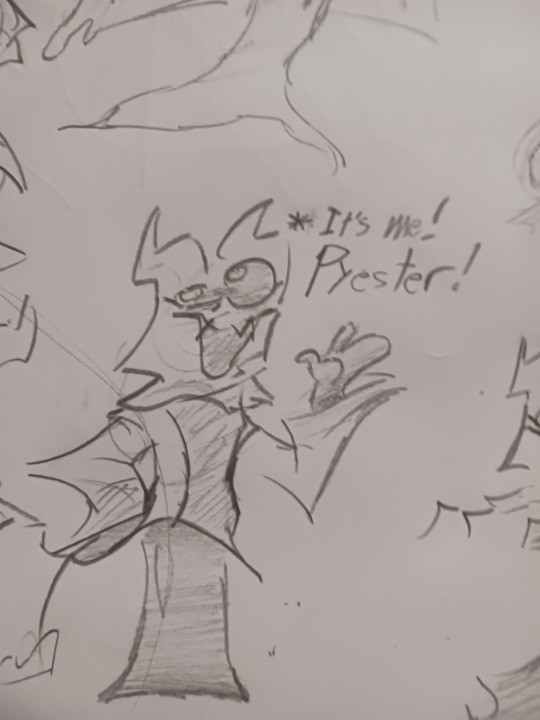
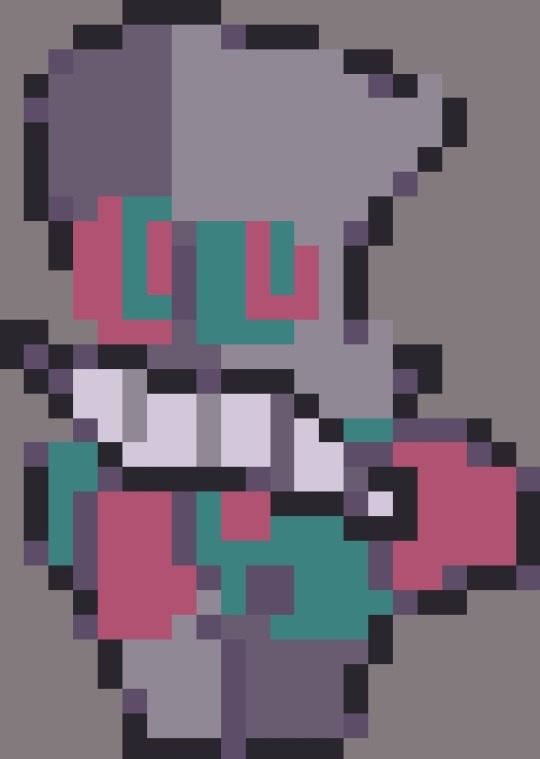
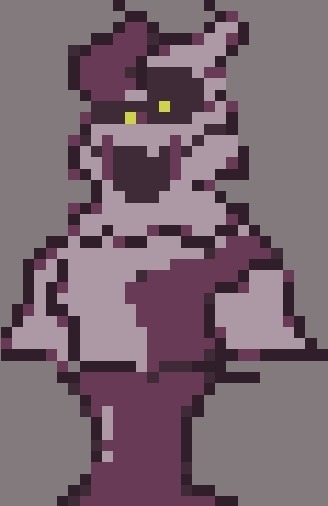
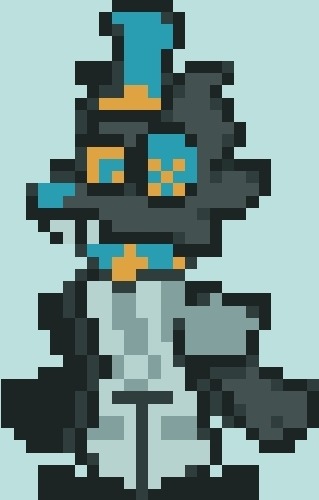
have fun with that or whatever.
-helvetica.
@mrchaosman made pyester
@imaginary-regret-608 made moddeux
#deltarune#deltarune oc#deltarune secret boss#deltarune fan character#deltarune chapter 3#deltarune chapter 2.5#deltarune fanart#secret boss#doctor pyester#moddeux#snakeeyes#dr. jekyll and mr. hyde#dr. jekyll and mr. hyde theory
21 notes
·
View notes
Text




Stupid little comic i made a while ago featuring this chaotic trio.
Bonus:

#jekyll and hyde#the strange case of dr jekyll and mr hyde#gothic literature#gothic lit#henry jekyll#hastie lanyon#john utterson#gabriel utterson#my art#silly little comic#if youre wondering what lanyon found out#i wont tell òwó#its up to your imagination owo#but if you have a theory feel free to write it in the comments#because im curious c:
30 notes
·
View notes
Text
Because there’s been a lot of attention on Jasper lately, I wanted to concretely explain my theory about mind Jasper before it’s too late!
So far all we know about mind Jasper is that there is a mind Jasper (from what I know lol) and so I’ve thought quite a bit about what exactly he would serve plot wise.
Something that has been theorized for a long time is that Jasper would be a parallel/counter part to Jekyll. Not only is he new to everything, but he very much cares about what everyone thinks of him (just in different ways and for different reasons), but he is actively learning and as we’ve seen through these past few chapters especially, he’s managed to stand up for himself and improve.
Now to be a mind person in jekylls brain, you gotta be someone you look up to in one way or another (and represent something). Lanyon is perfection, a high society man. Frank is that hydish part of him, free to do the mad science and experiment to his heart’s desire. I think mind Jasper would be not only compassion, but a middle ground.
Here’s the big thing: Jasper still doesn’t have the perfect cure for his wolfbane thing, like it’s still an issue and ito is still making the solution. Guess who is the other alchemist besides Jekyll? Guess who also deals with transformation issues?? GUESS WHO STILL HAS THE NOTES FROM THE ORGINAL HJ7???
My theory for the foreseeable plot/future is that Hyde tries to explain the situation, frank an ito work on a new solution and Rachel and Jasper get to know the REAL Hyde, and work with to either get to know him better in general or conect the bridge between Hyde and Jekyll. Jasper will understand Hyde on a deeper level due to his own experiences (not just the werewolf thing! :) and help him accept himself.
Im imagining in that moment we see that there is newly created mind Jasper and he would help Jekyll find his way to the surface back to consciousness. Then it comes full circle!
Anyways wanted to get my thoughts out there, sorry for the long ramble!
#jekyll and hyde#the glass scientists#tgs#edward hyde#henry jekyll#tgs hyde#dr jekyll and mr hyde#tgs jekyll#tgs frankenstein#tgs jasper#jasper#jasper kaylock#mind jasper#fan theories#rambles
43 notes
·
View notes
Text
it's time to play my new favourite game: what did lanyon spot in the final panel of the new tgs page???
I've got three plausible theories:
lanyon saw the green science goop, which is a result of the transformation. this is probably the most likely of the theories, because we see the transformation starting during jekyll's one (1) panel, and as he's so close to the door, the goop might be leaking out from under it.
lanyon saw the papers frankenstein had on the ground, and read about the potion and the transformations; it warrants the amount of shock we see in his eyes, and I'm pretty sure it makes sense? it's plausible, but not as likely.
lanyon saw the transformation and/or hyde through the keyhole. this is the least likely of the theories, because the angle of his vision doesn't quite line up, as far as I can see, but it could also explain his shock, and to be perfectly honest I really want the reveal to come very soon.
I'm so excited for next monday already!!! definitely can't wait to see what's actually going to happen!
#tgs#the glass scientists#tgs monday#tgs theory#tgs lanyon#tgs jekyll#the strange case of dr jekyll and mr hyde
57 notes
·
View notes
Text
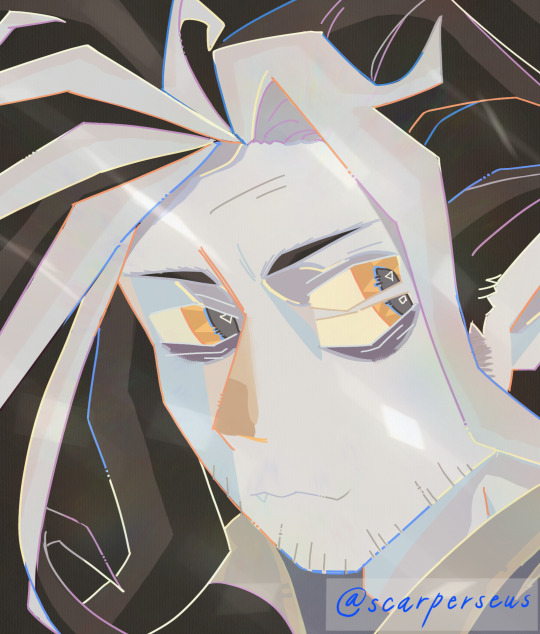
oh dear, he’s turned neon..
#cough cough#didnt rlly know what to caption this#But showed it to my friend and that was their response. Thought it was pretty funny#Disclaimer I had no idea what I was doing when coloring this#I kind of just.. strangled the color demon and demanded answers#And it puked out… this#Dk how to feel ab it but wtv worked 3 hours on it not gonna let it go to waste#jekyll and hyde#dr jekyll and mr hyde#edward hyde#my art#scart#scarstuff#I need that color theory class asap#art
35 notes
·
View notes
Text
A Thought on "The Mask"
Is anyone familar with The Mask? The green-faced character Jim Carrey played in a film? (It was a comic series first and there was a cartoon show after the film)
It was one of my favorite films as a kid and I just revisted it and the show. Even checked out the comics, (Which is very different from the film/show) and I came to a conclusion:
The Mask is a lot like Dr. Jekyll and Mr. Hyde.
Think about it, while the mask gives a person chaotic cartoonish abilities and makes a person act different, even darker and more violent, it doesn't completely change them, it brings out their repressed parts and darker desires. And the more a person uses the mask, the more they want to, like a drug. Basically, it sort of turns them into addicts with the mask as their drug, since it doesn't force them to wear it, just gets them hooked.
Its the same as the original Jekyll & Hyde story. As the potion didn't make Hyde as Jekyll's evil alter ego, it was still Jekyll, fully aware of what he's doing, he just drops his inhibitions and acts out his darker desires. And the more he uses it, the more he wants, at least until Hyde kills someone.
And whenever someone tries to fight both these influences, it's a take easier side then done.
So based on these similarities, this is way I say The Mask could be another version of Jekyll & Hyde.
10 notes
·
View notes
Text
I’m starting to wonder if the mayor from The Nightmare Before Christmas is based off of Dr. Jekyll and Mr. Hyde.
I mean, think about it. One side of the face is jolly, always smiling, and goofy like Dr. Jekyll, and the other side of the face is pale, angry, and has sharp teeth like Mr. Hyde…
#my speeches#theory#dr. jekyll and mr. hyde#the nightmare before christmas#robert louis stevenson#tim burton
10 notes
·
View notes
Text
OKAY I WAS JUST LOOKING AT THE LYRICS FOR CONFRONTATION (FROM THE JEKYLL AND HYDE MUSICAL AND I JUST HAD TO ADD THIS

WE ALL KNOW THATS THERES MUSICAL REFERENCES ALREADY IN THE MUSICAL SO COULD THIS ALSO BE A REFERENCE?????
Just realized something after looking at the cover art for some of tgs chapters. Every time you see Jekyll on a cover, he’s never without Hyde or without references to hyde
(Examples)
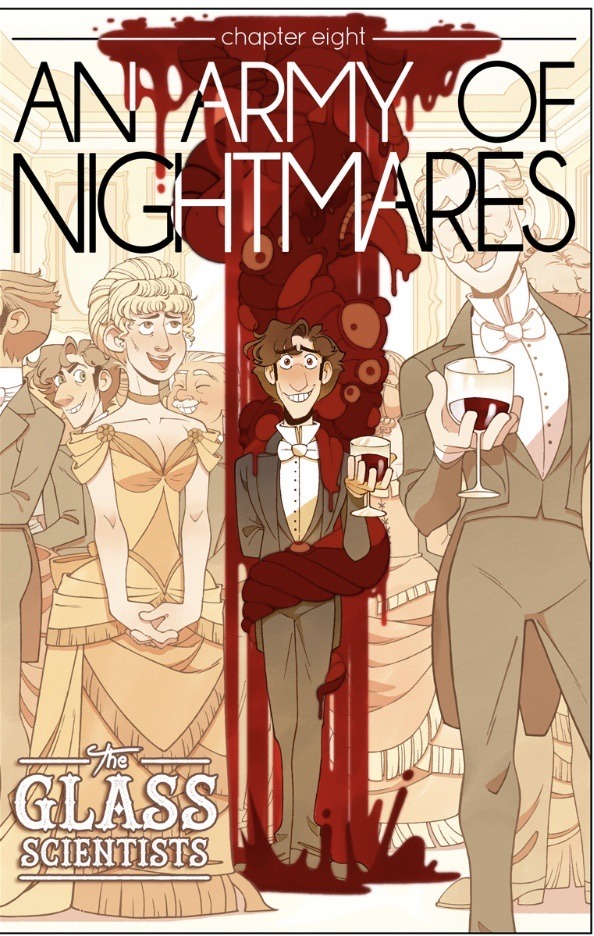
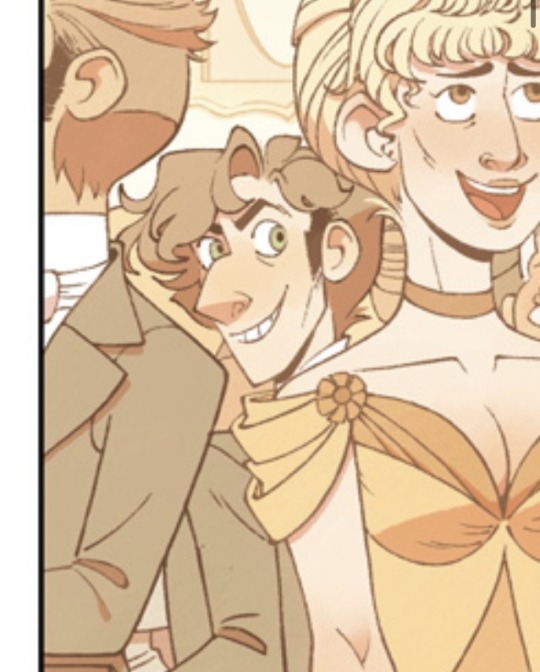
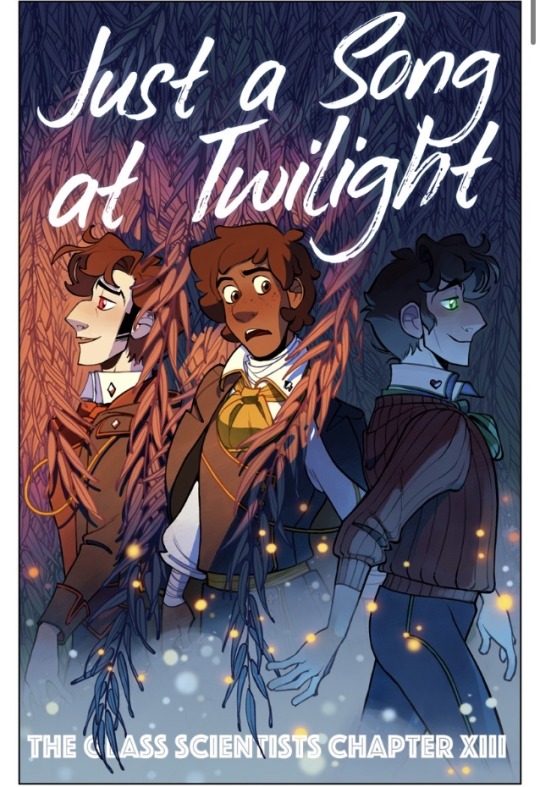
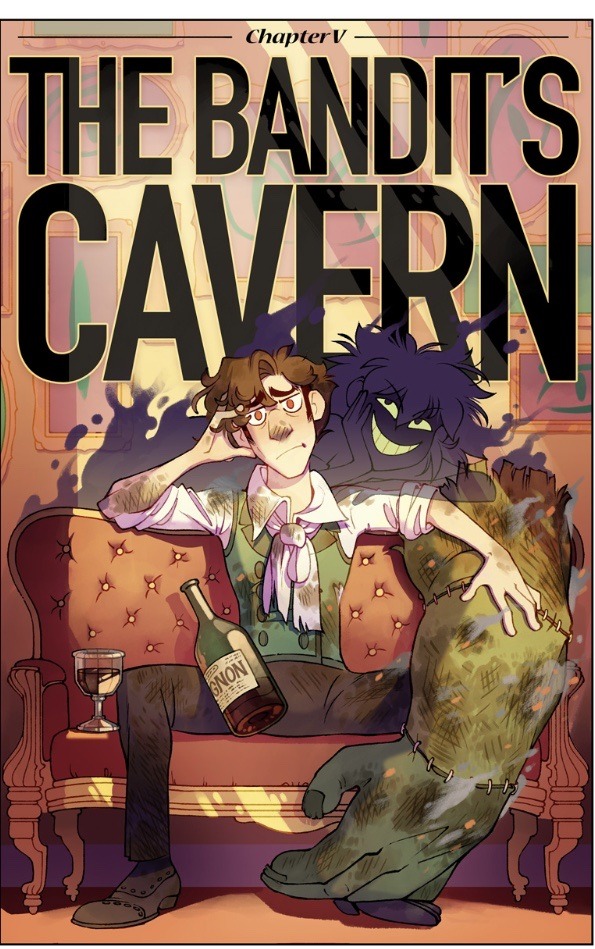

There’s really not any other places we see Jekyll without Hyde except when he’s with Lanyon
(Examples)
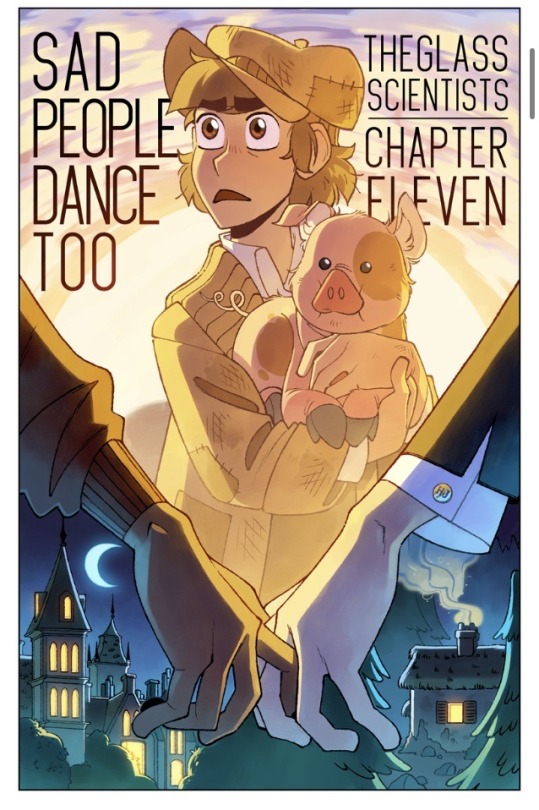
(Not interacting with Hyde/ shown with him )

IDK WHAT THIS MEANS AND ITS PROOOBABBLY NOTHING AND IM PROBABLY JUST IMAGING IT BUTTTT
#henry jekyll#the strange case of dr jekyll and mr hyde#suspicious!#edward hyde#tgs theory#tgs jekyll#tgs hyde#tgs henry jekyll#tgs edward hyde#the glass scientists
52 notes
·
View notes
Text


Finally.

Oh, nice - we're actually getting to see the summoning code, then? Am I going to be dusting off my ~ATH theory posts for the first time since 2022?

Oh, for fuck's sake. I can't read that, it's in some sort of ... English language. Bleh.

Is this... Scratch's mansion? Inside the Green Sun?
Am I to understand that the Sun actually contains the remains of the Alternian universe? I know Cascade depicted the two universes as through they were 'inside' the Tumor bomb, but I didn't think it was quite this literal.


Uh, Scratch?
Scratch, are you good?

Oh, god.
Scratch is English, isn't he?
They're the exact same entity - or perhaps two facets of the same entity, like Dr Jekyll and Mr Hyde. Scratch was never really summoning English, he was fulfilling the requirements to become him. That's why he's so fanatically loyal to the guy.

And what’s the God Tier clock’s role in all this?
Is English making use of God Tier revival, somehow? Is he a God Tier Player himself, but one who's managed to cheat the normal Just/Heroic resurrection rules?

Great - he's still got his First Guardian powers, too.
...guys, we are so fucked.
194 notes
·
View notes
Text

His last meeting regarding his theory didn't went well...
So here's an angry Jekyll c:
#gothic literature#jekyll and hyde#the strange case of dr jekyll and mr hyde#gothic lit#henry jekyll#edward hyde#my art#he has some temper#and he can be quite scary when hes angry#he usually tries his best to not show anyone#but some bloke criticising his theory?!#no way hes letting that one slide!#hope you enjoy :3
25 notes
·
View notes
Text
I just finished listening to Hunter’s iHeart podcast, and I’m fully convinced that they adapted Tyler’s storyline from The Strange Case of Dr. Jekyll and Mr. Hyde. It’s also worth noting that the podcast was released after they started filming Season 2, so by that time, Hunter had read at least some of the scripts.
Based on the book’s storyline- and everything we know about season 2-, here are the most plausible theories that come to mind:
1.Hunter said that by the end of Season 1, Tyler had "kind of lost all his humanity." I doubt Hyde responds well to solitary confinement in Willowhill. So, during Wednesday’s first visit, she’ll likely encounter the Hyde persona—not Tyler. Still, considering how deeply they got under each other’s skin in Season 1, it’s possible that something Wednesday says might trigger the real Tyler. That 'something' could relate to Donovan or Francoise.
2. Maybe I’m overanalyzing, but the way Hunter said, “Can you redeem someone who murdered some people?” was suspicious—he was literally giggling and kicking his feet while saying it. I genuinely believe that this question will be central to Tyler’s arc this season. I’d even bet money on it, especially since this season’s main theme is 'losing control'.
3. There has to be a nerve-wracking event in Tyler’s life to reawaken "the real Tyler." I’ve prepared myself for Donovan’s death, but I doubt they’ll kill him off so easily. If it does happen, it would require buildup—and once it happens, it needs to launch Tyler into a whole new emotional level. His mother is already presumed dead, so if he also loses his father, it could be the final blow that unravels him, this wouldn't fit into the agenda. That said, I’m pretty convinced Donovan won’t die—not yet. There's too much left to resolve: Morning Song, Willowhill, the stalker, and Tyler’s redemption arc. Plus, Hyde is too big of an asset for the show. Season 1 practically revolved around that violent little cutie. Tim Burton has built his entire career on making people empathize with morally grey—or even black—characters. I don’t think he’d let his hand-drawn "sensitive monster" go without a glorious send-off.
4. Either Francoise is still alive, or Donovan is in a situation where he needs to be saved. I believe this will connect directly to the people running Willowhill and the Morning Song cult. These two organizations are probably linked.
Willowhill definitely isn’t innocent. I believe the hospital is run by Morning Song cult members, elitist outcasts, or xenophobic normies. And all of them have a motive to abuse the outcast patients—especially someone like Tyler Galpin.
Laurel was just a pawn in a bigger game. Since she was able to access Francoise’s files, someone powerful must've been behind her. I suspect it’s the normies, but they likely lack Laurel’s personal vendetta. They don’t have strong emotional motives to oppose outcasts, they might even work with them if they see any benefit for themselves.
I think Dr. Fairburn might turn out to be a decent character, but Heather Matarazzo’s character is probably a sleeper-cell spy. Wednesday will likely uncover both her scheme and Principal Dort’s hypocrisy soon enough, and she may offer a quid pro quo to secure Tyler’s release. She wouldn’t risk being on the wrong side of history—if outcasts were abusing normies and suppressing their own kind, that would be a declaration of war in Wednesday’s book.
5. I’m still unsure how Wednesday would manage to keep Hyde under control, though. Maybe Bianca could use her siren song, or perhaps Hyde would choose to cooperate with Wednesday of his own accord. I pray the latter turns out to be true, because there’s something delicious about Hyde choosing to side with Wednesday while still being unreliable — and Tyler occasionally surfacing, messing with her mind just because he still resembles the boy she once knew.

6. And then there’s Karloff—that Frankenstein wannabe. How thrilling!

I have to admit, I have no idea how he'll come into play. I don't want to dwell on what the leaker said about him, I refuse to accept that bizarre "He accidentaly becomes Tyler's master" bs. For the second time, LET MY BOY LIVE ON HIS OWN WILL! (or Wednesday's...wait, who said that?). Though if he does get out and starts wreaking havoc around Jericho, I can definitely see why Wednesday would want Tyler on her side. You can only beat a monster with another one.
7. The stalker and the Addams family secrets also come into play. We know they’re trying to pave the way for a Fester spinoff. Maybe the stalker will turn out to be Debbie—but that’s just a wild guess. In any case, I don’t think this storyline will have a major impact on the season finale. It’ll more likely feed into the Red Death/Slasher/Camp episodes.
#why is there so much going on in here?#weyler#wyler#tyler galpin#wednesday addams#wednesday netflix#tyler x wednesday#wednesday x tyler#wednesday addams x tyler galpin#shipping#wednesday#wednesday s2#wednesday season 2#fan theories
49 notes
·
View notes
Text



This post translates directly to @musas-sideblog's about how Touchstarved ties with Victorian horror and implicit/metaphorical sex, and I couldn’t stop thinking about it, so here is a lengthy theory. Enjoy :)
Note 1: Victorian era authors used an unholy amount of ways to imply sexual feelings/acts etc, so I here I will include only the ones that are of interest. Note 2: I've highlighted the "most important" parts. Note 3: I'm not an expert at this, so please bear with me and feel free to correct me. Note 4: Do I need to add a TW? I think it's obvious-

Overview: What is Victorian Horror?
Victorian horror refers to the genre of horror literature, art, and culture that flourished during the Victorian era, roughly from the mid-19th century to the early 20th century, coinciding with Queen Victoria's reign from 1837 to 1901. This period was marked by a fascination with the macabre, the supernatural, and the dark aspects of human nature, reflecting the anxieties and societal changes of the time.
Key Themes and Characteristics
Supernatural Elements:
Ghosts and Spirits: Tales of haunted houses and spectral apparitions were central to Victorian horror. Charles Dickens's "A Christmas Carol" (1843) and Henry James's "The Turn of the Screw" (1898) are notable examples.
Monsters and the Gothic: The era's literature is filled with monstrous creations and gothic settings, such as in Mary Shelley's "Frankenstein" (1818), Bram Stoker's "Dracula" (1897), and Robert Louis Stevenson's "Strange Case of Dr Jekyll and Mr Hyde" (1886).
Science and the Unknown:
The Victorian period was a time of great scientific advancement, but also of fear about the implications of these discoveries. This is evident in works that explore the dangers of unchecked scientific experimentation, like "Frankenstein" and H.G. Wells's "The Island of Doctor Moreau" (1896).
Exploration of the Human Psyche:
Victorian horror often delved into the darker aspects of the human mind, including themes of duality, madness, and the hidden, sinister side of human nature. This is seen in "Dr Jekyll and Mr Hyde" and Edgar Allan Poe’s works, such as "The Tell-Tale Heart" (1843).
Social and Moral Anxieties:
The literature frequently reflected Victorian society's fears and anxieties, including issues related to sexuality, class, and the role of women. Gothic novels often contained subtexts about societal norms and the consequences of transgressing them.
Urban Fear and Isolation:
The rapid urbanisation of the Victorian era contributed to themes of isolation, alienation, and fear of the crowded yet lonely cityscape. This is evident in the settings of many horror stories, such as Arthur Machen's "The Great God Pan" (1894).
Sexual Content: Victorian literature is renowned for its strict moral codes and conservative views on sexuality. Explicit depictions of sexual activity were considered taboo and were subject to censorship. Consequently, authors developed subtle and nuanced methods to imply sexual scenes or themes.
Literary Techniques for Implying Sexual Scenes
✧ Symbolism and Imagery:
Sexuality was often conveyed through symbolic imagery. Objects, actions, or natural phenomena could serve as metaphors for sexual activity or desire. For example, in "Dracula" by Bram Stoker, blood and biting symbolise sexual penetration and the exchange of bodily fluids, infusing the act with a sense of forbidden desire and eroticism.
Clothing and Undress:
Gloves: In Victorian culture, gloves were highly symbolic. The act of a woman removing her gloves in the presence of a man, or a man assisting her in this act, could signify a moment of intimacy or vulnerability. Similarly, a man giving a woman his gloves could be a sign of affection or a deeper connection.
Hats and Bonnets:
Corsets
Objects and Personal Items:
Locks of Hair
Jewellery
Books and Letters
Touch and Physical Contact:
Kissing Hands
Hand-Holding
Food and Drink:
Wine: Sharing wine or a meal in an intimate setting often suggested a prelude to deeper connection. Descriptions of characters drinking wine together in private could imply a romantic or sexual undertone.
Fruit: Certain fruits, like apples, grapes, or peaches, were laden with sexual symbolism. Eating or sharing fruit could represent temptation or indulgence. For instance, in Christina Rossetti’s poem "Goblin Market", the act of eating the goblin fruit is rich with sexual symbolism.
Flora and Fauna
Flowers and Gardens:
Roses: Roses were often used to symbolise love and passion. A red rose might suggest romantic or sexual attraction, while a wilted rose could imply lost innocence or sexual ruin.
Lilies: Lilies, especially white ones, represented purity but could also suggest a contrasting theme when associated with a fallen or tarnished character.
Garden Settings: Scenes set in secluded gardens or amongst lush, overgrown vegetation often hinted at secret or forbidden encounters. Descriptions of characters wandering through or tending to gardens could imply sexual exploration or awakening.
Flowers Blooming or Opening: The blooming of flowers often represented sexual awakening or the act of losing one's virginity.
Nature Imagery:
Rivers and Water: Flowing water and rivers often symbolised sexual desire and the act of lovemaking. For instance, in "Tess of the d'Urbervilles" by Thomas Hardy, Tess's encounter with Alec d'Urberville is often described with metaphors of nature and fluidity.
Storms and Weather: Storms, with their intense energy and sudden outbursts, were frequently used to symbolise sexual passion or climactic moments.
Birds and Beasts:
Animals, especially those that are wild or predatory, often symbolised primal sexual instincts and desires. The taming or interaction with these animals could imply a character’s grappling with their own sexuality.
Fire and Heat
✧ Phrases and Sayings
Euphemistic Language
Descriptive Phrasing
Dialogue and Confessions
Private Spaces:
Secluded or Dimly Lit Rooms: Scenes set in private, darkened rooms often suggested clandestine sexual encounters. The privacy of the setting allows authors to imply what could not be explicitly stated. In Wilkie Collins’s "The Woman in White", many key interactions happen in secluded spaces, hinting at secrets and hidden desires.
Dreams and Fantasies:
Dream Sequences:
Dreams and fantasies were used to explore a character’s subconscious desires and fears, often revealing their suppressed sexual longings. These sequences provided a socially acceptable way to delve into erotic themes.
Hallucinations and Madness:
Moments of madness or hallucination could serve as a metaphor for overwhelming passion or uncontrollable sexual desire. These states allowed characters to express forbidden feelings in a way that was metaphorically safe.
Physical Interactions and Horror
Touch and Proximity as Menace:
Unwanted or Forced Touch: In horror, touch that is typically a sign of affection or intimacy becomes a source of fear.
Physical Closeness in Horror Settings: Close proximity in dark, secluded places amplifies the sense of claustrophobia and vulnerability, turning what could be an intimate setting into one fraught with terror.
Undress and Exposure in Horror:
Loosening Corsets and Vulnerability: The act of undressing or loosening clothing, which can be a prelude to intimacy, in horror often leaves characters vulnerable to attack or exposure of their deepest fears.
Food and Consumption in Horror
Cannibalism and Vampirism:
Blood as Sexual and Vital Fluid: The act of consuming blood, as in vampirism, blends the themes of sustenance and sexual exchange. The vampire's bite becomes a metaphor for both sexual penetration and the transfer of life force.
Example: "Dracula" is a prime example where blood consumption is deeply eroticized, with Dracula’s victims often portrayed in a state of ecstatic submission as he drains their blood.
Food as a Lure: Food and feasting, typically symbols of pleasure and indulgence, in horror contexts can be used to lure victims into dangerous situations.
Example: In "Goblin Market" by Christina Rossetti, the goblins’ fruit is both irresistibly tempting and dangerous, representing a forbidden and potentially fatal indulgence.
Plot and Character Dynamics in Horror
Power and Domination:
Common Dynamics with a Dark Twist
Predators and Victims: Characters who prey on others are often literal monsters in horror, representing the loss of control or innocence.
Secrecy and Concealment:
Hidden Desires and Monstrous Revelations: Characters who conceal their true identities or desires often find these hidden aspects manifesting as monstrous or terrifying in horror narratives, suggesting that repression can lead to dire consequences.
Clandestine Meetings and Forbidden Encounters: Secret meetings and forbidden relationships, often tinged with sexual implications, add an element of danger and fear, suggesting that transgressing social norms leads to horror.
Common Themes in Victorian Horror
Duality and the Doppelgänger:
Theme: The concept of duality, where a character has a hidden, darker side, or encounters a double (doppelgänger), often symbolises the internal conflict between good and evil within individuals.
Connection: This theme reflects Victorian anxieties about identity, morality, and the consequences of repressing one’s darker impulses.
Gothic and Supernatural Elements:
Theme: Victorian horror is rich with Gothic elements such as haunted houses, dark landscapes, and supernatural beings. These elements create a sense of dread and evoke the mysteries of the unknown.
Connection: The Gothic setting often serves as a backdrop for exploring human fears, isolation, and the impact of the supernatural on everyday life.
Decay and Degeneration:
Theme: The fear of decay and degeneration, both physical and moral, is a recurring motif. This theme often examines the decline of individuals, families, or societies and the consequences of corruption and vice.
Connection: This theme mirrors Victorian concerns about the erosion of social and moral values amidst rapid industrial and social changes.
Madness and Psychological Horror:
Theme: The exploration of madness and psychological horror delves into the fragility of the human mind and the terror of losing one's sanity. This often includes hallucinations, obsessions, and the thin line between reality and delusion.
Connection: This theme resonates with Victorian fears of mental illness, the limitations of medical knowledge, and the impact of societal pressures on mental health.
Forbidden Knowledge and the Faustian Bargain:
Theme: The pursuit of forbidden knowledge and the resulting consequences is a central theme. Characters who seek power, immortality, or forbidden truths often pay a heavy price, reminiscent of the Faustian bargain.
Connection: This theme highlights Victorian anxieties about scientific progress, moral boundaries, and the potential hubris of human ambition.
The Uncanny and the Unknown:
Theme: The uncanny involves the strange and unfamiliar becoming eerily familiar, often unsettling the reader and characters. It blurs the lines between reality and the supernatural, invoking fear and discomfort.
Connection: This theme taps into Victorian fears of the unknown, the foreign, and the otherworldly, reflecting broader anxieties about social and cultural boundaries.
Death and the Afterlife:
Theme: Victorian horror frequently grapples with themes of death and the afterlife, exploring the fear of mortality, the possibility of an afterlife, and encounters with the dead or undead.
Connection: These themes reflect Victorian preoccupations with death, the spiritual realm, and the possibility of life beyond death, often intensified by the era's high mortality rates and interest in spiritualism.
Isolation and Alienation:
Theme: Isolation and alienation are prevalent themes, often highlighting characters who are physically or emotionally detached from society, leading to their vulnerability and descent into despair or madness.
Connection: This theme resonates with the Victorian experience of industrialization and urbanization, which often led to feelings of disconnection and loneliness.
Class and Social Anxiety:
Theme: Victorian horror often explores themes of class and social anxiety, including the fear of losing social status, the consequences of poverty, and the tension between different social classes.
Connection: This theme reflects the rigid class structures of Victorian society and the fears and tensions that arose from social mobility and economic disparity.
Moral Corruption and Hypocrisy:
Theme: Victorian horror frequently critiques the era’s moral standards and exposes the hypocrisy of societal norms. Characters who appear virtuous often harbor dark secrets or engage in morally dubious activities.
Connection: This theme mirrors the Victorian concern with appearances and the underlying tension between public propriety and private desires.
The Five Pillars of Victorian Horror & The Five Love Interests
The Supernatural and the Gothic (Ais)
Essence: Victorian horror often revolves around the supernatural, blending Gothic elements to evoke a sense of dread and otherworldly terror. This includes ghosts, vampires, haunted houses, and curses, which create an atmosphere where the boundaries between the natural and the supernatural blur.
Impact: The use of Gothic settings and supernatural phenomena provides a backdrop for exploring deeper themes of fear, mortality, and the unknown.
Psychological Depth and Madness (Vere)
Essence: Victorian horror delves into the complexities of the human mind, exploring themes of madness, obsession, and the psychological effects of fear and trauma. Characters often grapple with their sanity, facing inner demons as terrifying as any external threat.
Impact: This focus on psychological horror allows for a deeper exploration of character motivations and the impact of societal pressures.
Moral Corruption and the Double Life (Leander)
Essence: Themes of moral corruption and the duality of human nature are central to Victorian horror. Characters often lead double lives, presenting a veneer of respectability while concealing dark, sinful secrets. This tension between outward appearances and hidden truths reflects the era’s social hypocrisy and fear of scandal.
Impact: These themes critique Victorian society’s emphasis on propriety and the dangerous consequences of repressing one’s true nature. The idea of a double life or hidden self adds to the horror by suggesting that evil can reside within anyone, masked by a facade of normalcy.
Decay, Degeneration, and Disease (Kuras)
Essence: The themes of physical and moral decay, societal degeneration, and disease permeate Victorian horror. These motifs symbolise the fragility of human life and the inevitability of decline, reflecting the anxieties of a society grappling with rapid change and uncertain futures.
Impact: By focusing on decay and degeneration, Victorian horror underscores the transient nature of life and the ever-present threat of corruption and decline, whether through ageing, moral compromise, or societal breakdown.
Isolation and Alienation (Mhin)
Essence: Isolation and alienation are pervasive themes in Victorian horror, often depicted through characters who are physically or emotionally cut off from society. This separation heightens their vulnerability to external threats and internal fears.
Impact: Isolation serves to intensify the psychological tension and sense of dread, as characters confront their fears alone. It also reflects the era’s social and existential anxieties, including the fear of being disconnected or outcast from society.

Generally, I believe each LI connects with a pillair (as seen above). Perhaps by looking at the archetypes we could deduce propable endings and route elements.
Forgive me, for the following part is MESSY;
Ais
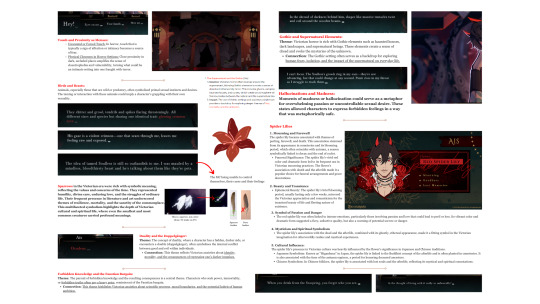
Vere
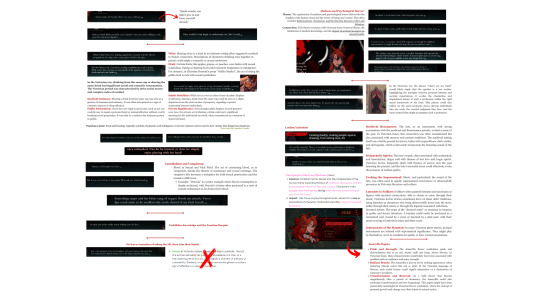
Leander
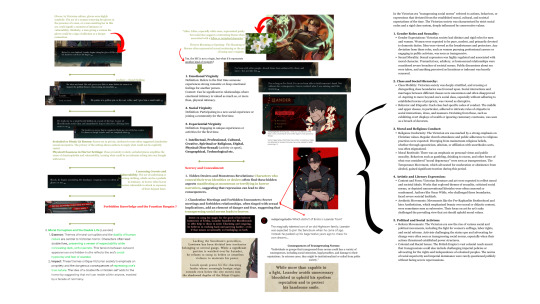
Kuras
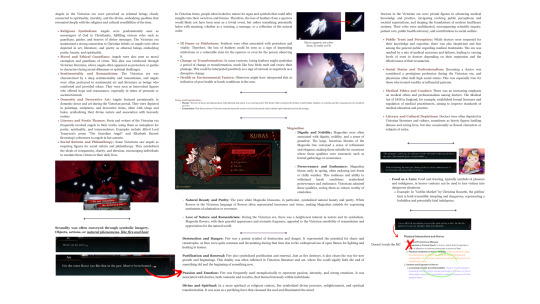
Mhin
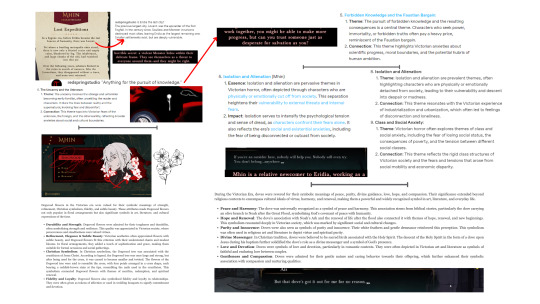

#THIS TOOK ME AGES#but it was worth it#vereletters#touchstarved theory#touchstarved theories#touchstarved ais theory#touchstarved vere theory#touchstarved kuras theory#touchstarved leander theory#touchstarved mhin theory#red spring studios#touchstarved#ts#touchstarved headcanons#touchstarved game#touchstarved oneshot#ais#ais headcanons#ais ts#ts ais#ais touchstarved#touchstarved ais#ais oneshot#vere#vere headcanons#vere ts#ts vere#vere touchstarved#touchstarved vere#vere oneshot
229 notes
·
View notes
Text
okay I've got like a sort-of-mini-theory for tgs that someone has probably said before but I'm going to put it down here bc I haven't seen any yet.
and bc tomorrow is tgs monday, I thought I'd put my thoughts down before they inevitably get disproven.
so to me, as a very big jekyll and hyde fan, the current events are very remniscient of 'the last night' from the og book, in which utterson and poole break down the door to jekyll's study only to find hyde, dead on the floor. it is later revealed that jekyll/hyde had lost control of the transformations, just as they have in tgs at the moment. as things stand right now, I think it's definitely plausible for lanyon & co to break down the door, despite frankenstein's protests, only to discover a dead hyde on the ground. how? because of that elixer frankie had, way back in chapter 11 - le sommeil de la mort, I think it was called.
that elixer is 100% a chekhov's gun, in my opinion, and this would definitely be the perfect time for it to fire. there is a thing that definitely irks me and completely disproves this theory; in that same chapter, jekyll and jasper bring all of frankenstein's things to his house, including, I'm pretty sure, the elixer.
ah well. it's fun to think about how events in tgs might align with the original book tho, and I can't wait to see what actually happens :D
#the glass scientists#tgs#tgs theory#tgs monday#jekyll and hyde#the strange case of dr jekyll and mr hyde#theory#idk i just think it would be pretty nifty
59 notes
·
View notes
Text
In celebration of Epic Universe finally opening and it being World Goth Day, allow me to offer you some of my personal theories and headcanons about the gloomy world of Darkmoor! ⚡️⚡️⚡️

Theories:
⚰️ For starters, there are five distinct groups: Dr. Frankenstein and Ygor, Dracula and the Monsters, the Hounds of the Burning Blade Tavern, the Mystics, and the Bride.
⚰️ Dr. Victoria Frankenstein, as we have often know at this point, wants to control all the Monsters with her experiments and forever change the history of Frankenstein. For what her real intention is, we have no clue, but we do know that she is considered to be morally grey. It is possible that Victoria treats her creation and Ygor somewhat more kinder than her predecessors (with some exceptions).
⚰️ Dracula is the direct opposite of Victoria, leading the rebellion that occurs within the Monsters Unchained ride. Not every Monster sides with him, but may do so only to gain their freedom and go on their own path. As the self-proclaimed leader, Dracula goes out of his way to reveal the truth behind the Doctor's intentions to everyone and thus answering the question of who is the true monster.
⚰️ The Hounds of the Burning Blade Tavern are the monster hunters of Darkmoor, the ones brave enough to cleanse the world of evil once and for all. While they have had successful hunts, the Hounds have had their failures as well. They are all bound to a code, a vow established by Professor Van Helsing himself, but not every member abides to it. Some are blinded by the thrill of the hunt.
⚰️ The Bride of Frankenstein is a different story; one driven away by the cruelities of both Victoria and Dracula. All she wants is freedom, a peaceful life for her and her Tall Friend. She firmly believes that the outside world is kind and so she often helps him escape the Frankenstein Manor to share that kindness.
⚰️ Both the Creature and his Bride were created and brought to life around the same time, albeit the Bride had more time-consuming complications due to Dr. Pretorius' recipe for Plant-Based Brains. The brain used for Victoria's creation is the same brain used by Henry Frankenstein's creation (Boris Karloff).
⚰️ Due to her Plant-Based Brain, the Bride can comprehend things much faster than her Tall Friend. Unlike her original counterpart (Elsa Lancaster), she can read, write (somewhat), recognize patterns, solve puzzles, and most importantly: love. For what she lacks in strength, she makes up for in sheer intelligence. This proves difficult for Victoria and Ygor, for she is cunning enough to escape their clutches on multiple occasions.
⚰️ The Mystics are a neutral party; natives of Darkmoor who share familial and magical bonds with their ancestors. They share a great history with the warring sides, either by aiding humans or by giving in to the winning side. Either way, they are a wild card, depending on who you ask, and it is always best to heed their warnings.
⚰️ Darkmoor became the village we know today when Dracula was revived after the events of the original 1931 film. It was he who gave his kind a new home, infiltrating the humans into submission through seduction and violence. Eventually, the bloodshed lessened as a deal was struck: the humans will live, but only because the vampires let them willingly.
⚰️ Here's where things get tricky: as to how characters such as Erik the Phantom, Quasimodo, Dr. Jack Griffin, Dr. Jekyll/Mr. Hyde are alive after all these years is unknown. Perhaps Universal changed the timeline of the films so that Dark Universe as a whole can work. After all, it was mentioned long before the park opened that Darkmoor is the result of every Universal Monster film that has occurred. My biggest theory is that Victoria brought these specific characters to life, whereas Dracula, Imhotep, and possibly the Wolfman(?), are immortal.
⚰️ When I say that Victoria brought them to life, I mean as in she summoned them by blending her and Ygor's technology and dark magic. This is where the Mystics come in. It is possible that the Doctor, in her early days of her experiment, once visited or came across the Mystics in search of specimens. Here she learns of their magic, both good and bad, and was warned of the power it held. Despite the warnings, Victoria went on to perform a forbidden summoning ritual and brought the deceased Monsters back to life, using the collection of items found in her manor (queue line after the preshow).
Headcanons:
🦇 Erik, the Phantom of the Opera, and Quasimodo are best friends. Two Frenchmen who were ostracized for their hideousness and died falling in love with their respective young ladies? Can't get more relatable than that!
🦇 Victoria has a ton of body scars underneath her suit and she is very self-conscious about it, hence why you never see her wearing any revealing other than her face. To be honest, I wish Universal gave her a kick ass battle scar on her face. I don't care if it's cliché or if she follows safety procedures to a tee, accidents can and do happen.
🦇 Meanwhile, Ygor is... severely scarred and stitched almost everywhere on his body. More so than Victoria. This is due to being Victoria's occasional lab rat, constantly being killed and revived again and again as well as going through a lot of major accidents and incidents. The guy needs a rest.
🦇 Victoria's Creature, a.k.a. Frankie 2.0, would sometimes have reoccurring memories of the past (events of the OG film). One time while he was walking through Darkmoor with his Bride, they came across the statue of Maria in the graveyard and he suddenly burst into tears.
🦇 The Creature from the Black Lagoon uses sign language to communicate. Sometimes he would sign with Victoria and Ygor, but most of the time he usually signs with the other Monsters. Quasimodo, Erik, Dr. Jekyll, Dr. Griffin, and Larry also use sign language.
🦇 It's unsurprising that Dracula goes through Brides like coffee filters throughout the centuries, but not every knows that he genuinely has interest in every single one of them. There's a reason why he chooses his Brides; not every woman or person is "Bride Material." He mourns for his fallen ones, but the pain lessens after a long while.
🦇 Frankie's experiences with the other Monsters are a mixed bag. Sometimes, Victoria would need an extra pair of hands to restrain the more rowdy subjects. But there have been moments where Frankie would have new friends by the end of the day. He particularly likes Erik, especially when he plays the violin.
🦇 The reason why Dr. Griffin and Dr. Jekyll/Mr. Hyde have their own homes within the village instead of being imprisoned inside the Frankenstein Manor is because they both rivaled against each other and Victoria as mad scientists. They annoyed her so much that she agreed to allow them to have own their place, with the agreement that Ygor must supervise them every day at certain hours.
🦇 The only Monsters that are actually okay with being in the Catacombs underneath Darkmoor are Erik and Quasimodo. They were the first to be captured/resurrected by Victoria and Ygor, saving them from a lonely fate. The only gripe they have is that they would have to cooperate anytime the doctor needs to do an experiment.
#Happy Goth Day!#Happy Epic Universe Day!#Happy Darkmoor Day!#epic universe#epic universe dark universe#dark universe#dark universe headcanons#dark universe theories#darkmoor headcanons#darkmoor theories#Universal Monsters
26 notes
·
View notes
Text
Gravity Falls: For Your Own Good, Ch. 11
Summary: A few years after moving to Gravity Falls and having his lab built, Stanford Pines happens upon his estranged twin brother, Stanley. He mentally prepared himself to be suffocated by his brothers neediness all over again - what he wasn't prepared for was Stanley walking right past him like he didn't even notice him.
Rating: M for language, violence, and adult implications
Preface: Dialogue only, but some actions will be annotated for clarity. Cross-Posted on AO3 Here
First - Prev - Next
CH. 11
“One paddle-paddle, two paddle-paddle-.”
“HEYYY! Miss me, little brother?”
“...What the f-”
“It’s ironic! You used to smother me, with your dependency and lack of originality. Now I’m smothering you, by keeping you in a cage. It’s poetic, in a way.”
“...What are you supposed to be?”
“It’s just me, Stanford Pines. I’m definitely your twin brother, and not a maniac who kidnapped you because I can’t admit when I’m wrong or accept that I push people away.”
“Naw, you’re not him.”
“I assure you-.”
“No. Whatever you are? You’re not the guy who's been keeping me down here. You’re something else.”
“Oh?”
“This some… Dr. Jekyll and Mr. Hyde situation? You one of those hive mind aliens that possess people? Or…?”
“Sixer was right to not underestimate you, conman. Let’s just say I’m a friend.”
“I’ve heard that before, but I recognize another wiseguy when I see one. What do you really want?”
“Why are you in denial, Stanley?”
“Denial is my fourth best skill, actually. It’s right above hoeing, and right below theft.”
“...Ignoring that. Why do you keep insisting you’re not Stanley Pines?”
“Show me the proof, guy.”
“You and Stanford have the same face.”
“Some people are just like that.”
“You have no memory of having a family, but Fordsy here has a gap in his, a gap you could slot into so easily.”
“Lot’s of families ‘lose’ members to homelessness.”
“Sounding a little bitter there, conman. Got personal feelings about that?”
“People aren’t ‘lost’ to homelessness, they’re forgotten. For the comfort of everyone else; for people who love to wax poetically about how other people struggle, but don’t have the stomach to look at it with their own eyes.”
“Well, well, well, well, well-.”
“Buddy, you get a nickel every time you say that?”
“Funny. What’s also funny is your ‘deep insight’. You’re so mad about people like you being forgotten, and yet… You forgot you.”
“What’s your point?”
“Why are you afraid of remembering? Are you afraid that you’ll remember loving people who couldn’t be bothered to remember you?”
“You seem to think you know a lot about me. Why don’t you tell me?”
“I think you cling to this ‘hardcore vagabond with no past’ persona because it’s convenient for you. Because it’s less painful for you. I think you wanted something so bad at one point that it consumed you, and when you couldn’t have it, there wasn’t anything significant left of you.”
“Wow. That’s quite a theory. Wanna hear the one I have about you?”
“Hit me, conman.”
“Oh, I wish I could. My theory is that you’re a lonely, nosey, parasitic little bi-.”
*‘Ford’ presses the mute button*
“Sorry Stanley, but I’m getting the last laugh here- and you’re giving me the bird. No, two birds. The audience will never know if you’re actually doing that, or if I’m just saying that you are.”
(...)
“Hey, Doc?”
“Yes, Stanley?”
“You know how I normally don’t ask you questions about your life because you’re crazy and I’m here against my will?”
“...Are you about to ask me a question?”
“Did you make a Faustian bargain with some eldritch abomination?”
“...What?!”
“Or… Do you use cocaine? I’d believe either, but I can help you with that second one if that’s it; you see, the key to kicking the habit is-.”
“Stanley. Why are you asking this?”
“Because last night something possessed you and tried talking to me about my feelings. But it failed because I don’t have any. What was that?”
“...Nothing possessed me.”
“PhD, you are terrible at lying.”
“Nobody possessed me! You must have just been dreaming.”
“No, I don’t have dreams. I only have nightmares about being suffocated. Or the IRS. Or the IRS suffocating me.”
“...What?”
“Are you a Warlock?”
“A- a what?”
“There’s this game that dorks play - and there's elves, and wizards, and stuff. Warlocks are those guys who use magic, but they have to get it from otherworldly entities. Are you that? Is that what you are?”
“...You are talking about the tabletop roleplaying game, Dungeons, Dungeons and More Dungeons?”
“Yes.”
“You.. play that?”
“No. I never played it.”
“But you know the mechanics?”
“Some of it. Just the basic stuff. None of the actual- I don’t know, rules? Something something something D38; something something something THAC0.”
“How do you know?”
“I dunno, I don’t think too hard about it. Anyways, so you’re a Warlock and you’re hiding it because your patron, boss, eldritch pimp, or whatever you wanna call it is gonna be mad at you? Is that what this is?”
“Stanley, please. Stuff like that is simply… fantasy.”
“Oh really? This is coming from the guy who has an anatomically accurate poster of a dissected fairy that you drew yourself.”
“...You can see that?”
“Why wouldn’t I? It’s right over there.”
“Stanley, you should not be able to see that. It’s too far away, and you’re not wearing glasses or contacts.”
“Doc, I don’t need glasses.”
“You have needed them our entire lives, just like I do. You have a bad habit of breaking them, or not wearing them because you think you won’t look cool.”
“Shows just how much you know. Are you gonna tell me what that thing last night was? Or are you going to keep changing the topic and hope that I get too distracted to follow up?”
“Nothing happened last night. I’m not a warlock. I can’t believe you lied to me all those years ago when you told me you ignored all of my long talks about the finer mechanics and lore surrounding DD&D. And you should need glasses.”
*Ford goes upstairs*
“Well, guess I have nothing better to do than to take a nap. I wonder how the IRS is going to suffocate me this time…”
To be continued…
#for your own good#early amnesia au#mystery trio#fords evil basement sub-lab#Stan calling Ford anything but his name#ford isn't beating the mad scientist allegations anytime soon#gravity falls#cross posted on ao3#fanfic#fanfiction#stanley pines#stan pines#stanford pines#ford pines#bill cipher
57 notes
·
View notes
Text
new crack theory: celia and mr bonzo are one and the same. it's a dr jekyll and mr hyde situation
#i have literally no backing for this other than ''mr bonzo walked out into the street and celia woke up out in the street''#and that i think it would be funny#tmagp#the magnus protocol#celia ripley#mr bonzo
172 notes
·
View notes